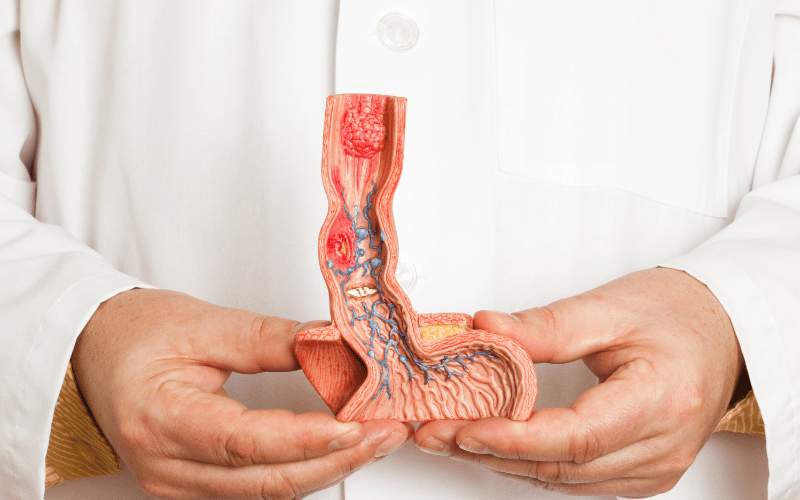Introduction: Uncover the Hidden Signs of an Esophageal Ulcer

Imagine sitting down to enjoy your favorite meal, only to be met with a searing pain in your chest. As you instinctively reach for an antacid, a nagging thought crosses your mind: Could this be something more serious? Today, we’re diving head-first into a subject that too many people overlook until it’s too late—esophageal ulcers.
This discomforting medical condition is more than just a minor annoyance; it’s a red flag your body waves to say something’s wrong. Esophageal ulcers are essentially open sores that form on the lining of your esophagus, that important tube connecting your mouth and stomach. Left unchecked, these ulcers can lead to a slew of health problems, from severe pain to dangerous complications.
The crux of the matter? Recognizing the symptoms as soon as they appear. You need to know what to look for to take timely action. Time is of the essence when you’re dealing with esophageal ulcers. The sooner you catch them, the quicker you can stop them in their tracks.
Now you might be thinking, what are these symptoms? Worry not, for this article has you covered. From the occasional yet concerning heartburn to unexplained bouts of nausea, we’ll break down the top 10 symptoms of esophageal ulcers. By the end of this reading, you’ll be savvy enough to spot the early signs and know exactly when to seek professional medical advice.
So, buckle up, folks. We’re about to go on a journey to demystify the symptoms of esophageal ulcers and arm you with the knowledge you need to reclaim your health.
1. Difficulty Swallowing (Dysphagia): The Silent Struggle

Swallowing shouldn’t be something you think about, but for those dealing with esophageal ulcers, it often is. This phenomenon, medically termed dysphagia, can be akin to attempting to swallow a golf ball. You feel every movement, every restriction as you swallow.
While dysphagia might sound simple, its implications are often broad. The act of swallowing involves intricate coordination between the brain, nerves, and muscles. If this delicate system gets disrupted by an esophageal ulcer, it can create a bottleneck of problems. Imagine the distress of not being able to eat your favorite foods or even being fearful of drinking water.
Studies have shown that people who experience dysphagia often suffer from nutritional deficiencies. The difficulty in swallowing makes mealtime stressful, leading to avoidance of certain foods. This can spiral into nutritional gaps that have their own set of complications. In severe cases, even hydration becomes an issue, resulting in further health woes. (1)